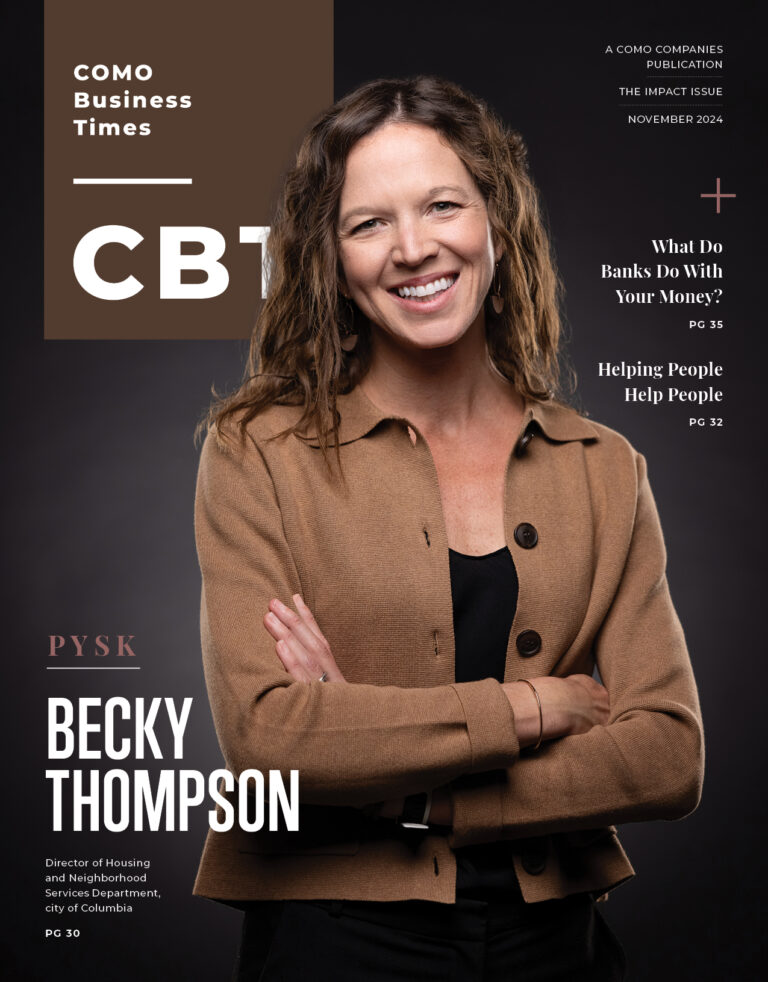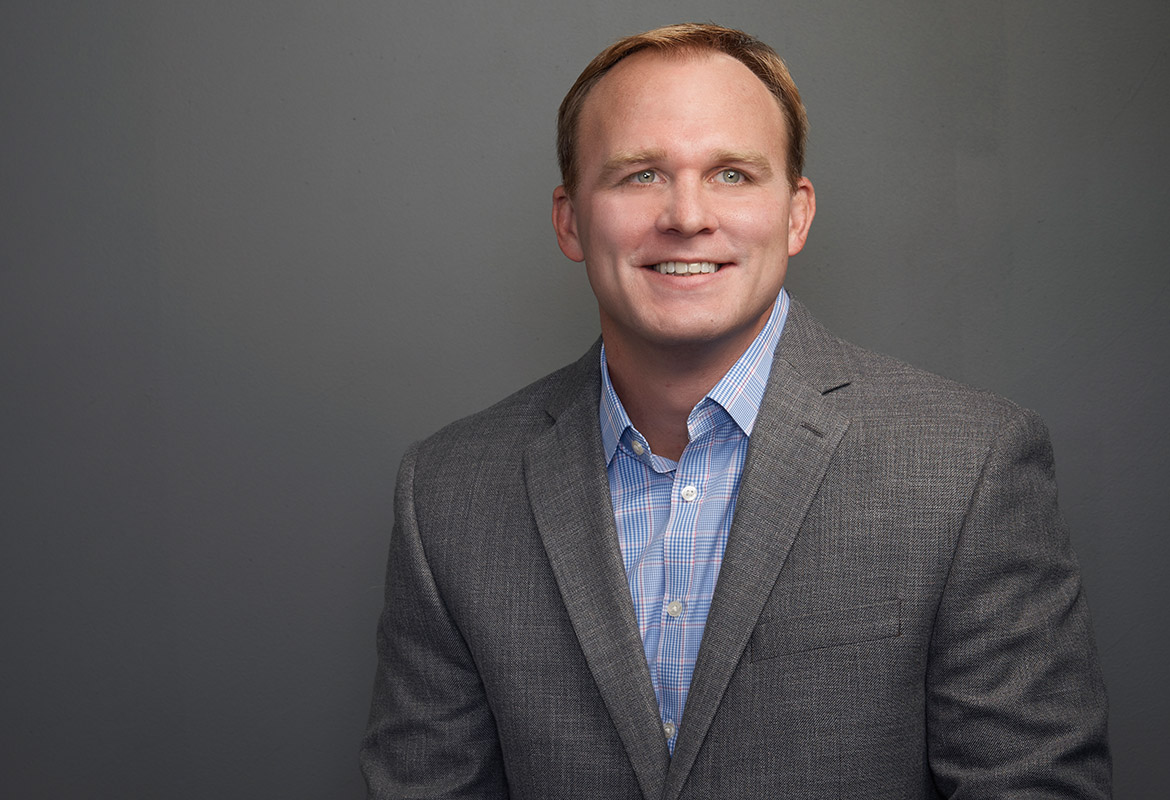20 Under 40 Class of 2017
Justin Dyer
Director of the Kinder Institute on Constitutional Democracy and associate professor of political science, MU
Age: 33
Hometown:
Olathe, Kansas.
Years lived in Columbia:
7.
Tell us about your job:
I’m a college professor, which to most people sounds like a retirement job. I teach classes, read interesting books, and take on writing projects that intrigue me. For the last few years, I have also been working closely with colleagues to build the Kinder Institute on Constitutional Democracy, an interdisciplinary center for the study of U.S. political thought and history.
Who is a mentor in your life?
My mentors, with few exceptions, have been teachers, coaches, and pastors.
What are some misconceptions about your job?
This applies to college professors generally — that we get summers off or that we only have to work the (relatively few) number of hours we’re in the classroom. The reality is that most professors are working nights, weekends, and summers in addition to the normal daily schedule. The good news is that it is (usually) work we enjoy.
What is the single best thing about your job?
People. I have to remind myself about this sometimes, but ultimately our work is meaningful only to the extent that we have a positive impact on the lives of other people. As faculty, we talk about our commitment to teaching, research, and service. But really it comes down to making the university a place where people can flourish as they pursue knowledge and wisdom together in community. That is what a university is for, right?
What was the last professional goal you accomplished?
The last year has been a whirlwind year, and we hit a lot of milestones with the Kinder Institute. The last significant milestone was successfully recruiting two established faculty members (professors Jay Sexton and Adam Seagrave) who will be major contributors for years to come. On a personal level, I co-authored a book on C.S. Lewis’ political thought that was published in August 2016.
What motivates you?
Sometimes all the wrong things — other people’s praise, and my own vanity and indolence. But when I am thinking clearly, I try to be motivated by a love of truth and goodness.
If you weren’t doing this job, what would you be doing?
Law school was always the path not taken. But there also is a small part of me that wishes I had become a professional MMA fighter.
Which accomplishment are you most proud of?
My wife, Kyle; our boys, Bennett and Pierce; and the little girl we are expecting in March. They remind me of Chesterton’s line that “the founding of a family is the personal adventure of a free man.”
What’s your favorite community project?
The Kinder Institute does a lot of different community programming, but one of my favorites is a little breakfast seminar we organize each year for about 20 people in the community. This year we are looking at the debates between Jefferson and Hamilton. It has been a lot of fun.
What is the single biggest lesson you’ve learned in business?
Teams — not individuals — build successful organizations. This is especially true in academia.
What is your favorite business book you’ve ever read and what impact did it have on you?
My business is education, and there are two books that have had a profound impact on how I think about education: Aristotle’s “Nichomachean Ethics” and C.S. Lewis’ “Abolition of Man.” The short summary is that the purpose of a liberal education is not just to know the right things but also to love the right things.
If you had unlimited funds, what is the one specific thing you would do to improve Columbia?
In my corner of the world, I would invest more resources in the academic mission of the university to recruit and retain the best faculty available. Unlimited funds would go a long way!
What is one goal you have for 2017 and how do you plan to achieve it?
We are working this year to recruit additional faculty members and graduate students to the Kinder Institute. To achieve it, we need to show people that Columbia is a great town, and the university — despite its recent challenges — offers some truly unique opportunities.
What trait do you most want in a co-worker or employee?
I want people on our team to be excited about our mission and to see the value in what we do every day.
If you could improve one thing about yourself, what would it be?
That I would spend less time thinking about myself or my future goals and plans and just be present in the moment — especially during these precious years when my kids are young. My oldest is in kindergarten this year. How is that possible?
What do you do for fun?
I try to get out and wrestle or do jiu-jitsu a couple times a week. And when friends invite me, I enjoy hunting and fishing. Most of the time, though, I am pretty content with a good book or a good conversation.


